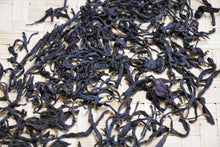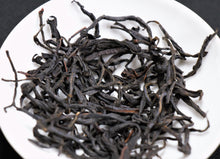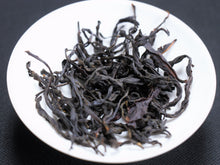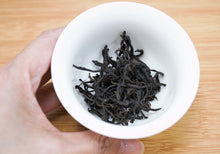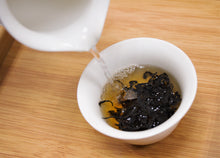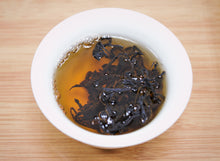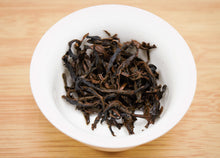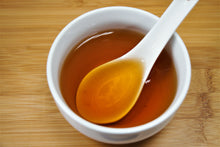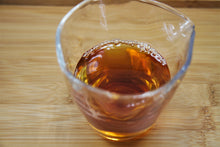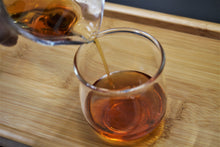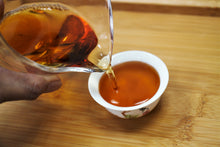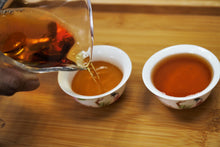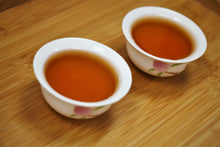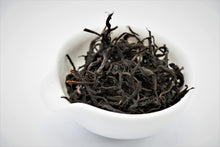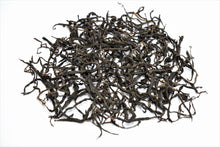
This is one of the most popular Yunnan black teas in our collection. It offers a thick, smooth mouthfeel with no bitterness or astringency. The flavor unfolds in rich layers of caramel and cocoa, finishing with a gentle hint of baked sweet potato and a subtle note of sugar malt.
Purple Tea: A Unique and Distinctive Variety
High-mountain purple tea is especially prized in Lincang, Yunnan. These purple tea trees typically grow in tea gardens located at high elevations, and for our production, we source fresh leaves exclusively from villages situated above 2,000 meters.
In Yunnan, this variety is known as Zi Cha, meaning "Purple Tea" in English. It is important to note that this is different from the Zi Juan cultivar commonly found in southern Yunnan. While Zi Juan tends to produce a more astringent taste, the purple tea from Lincang is known for its soft, smooth mouthfeel and easy-drinking nature.
The name “purple tea” in Lincang comes from the plant’s physical appearance—the stems of these tea trees often have a purplish hue. Interestingly, when processed into raw Pu-erh, the tea sometimes takes on a deep navy tone. During my time processing raw Pu-erh in a local village, I had the opportunity to pan-fry purple tea myself. I found that the leaves were noticeably more elastic and viscous compared to ordinary tea, a characteristic that contributes to its unique processing behavior.
What truly sets this tea apart is its flavor. No matter how it's processed—whether as raw Pu-erh, black tea, or other types—the purple tea variety consistently delivers a distinctive taste. When made into black tea in particular, it showcases a remarkably rich, full-bodied character with bold, lingering flavors.

Tea tree of purple tea


Purple Tea Leaves:
The tea leaves shown in the photo are intended for Pu-erh tea production. For black tea, the standard plucking style is typically one bud with two to three leaves.
Only Naturally Farmed Tea Is Used
We spent nearly two months in Yunnan to carefully identify and select tea trees that were naturally grown. With the rising demand for purple tea, many new plantations have emerged. However, young tea trees tend to grow much faster than older ones, which develop slowly over time. In naturally farmed tea gardens—where no fertilizers are used—the growth is even slower compared to conventional farms. This slower growth results in a noticeably cleaner, purer taste when brewed.
Moreover, tea from younger trees often has a lighter, more diluted flavor. That’s why we’ve chosen to harvest leaves exclusively from older trees, which offer a deeper, more complex aftertaste and a richer drinking experience.

The Landscape Where We Source Our Purple Tea
This is the beautiful environment where we source the raw materials for our purple tea—remote, high-altitude villages surrounded by pristine nature.
Flavor Deepens with Maturity
While many tea drinkers are familiar with aging Pu-erh to achieve a richer, more rounded taste, fewer people realize that black tea also benefits from some aging. When freshly produced, black tea may carry a light, greenish note. However, after a few months of rest, the flavor becomes noticeably deeper and more robust.
If you prefer a more mature, fruity character, simply store the tea in a warm environment without opening the bag. In Malaysia’s naturally warm climate, the tea usually develops its full, mellow profile within about six months.















